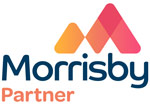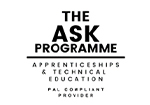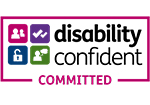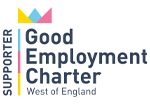SEND
Adjusting our practice
At FutureSmart Careers we always strive to work collaboratively with our clients - providing the level of support they need in a flexible way. When working with specialist schools and colleges, young people with SEND and their families, FutureSmart Careers has adopted an approach which focuses on ‘next steps’ rather than looking at long term goals and using the term ‘career’. That is not to say we won’t look at a student’s future goals and accomplishments or use the term ‘career’ if appropriate, but the rationale behind our 'next steps' approach is to help educational settings, young persons and their families consider what options are available to progress onto the next stages in life and achieve ambitions – whether it be education, learning, skills development, enrichment activities, progressing into adulthood or work.
Understanding ‘next steps’ - options and choices
The SEND Code of Practice: 0 to 25 years sets out clear obligations that local authorities, schools and academies must adhere to support children and young people with SEND – with chapter 8 focusing on supporting young people with SEND towards greater independence and employability.
When considering the different options and choices available to young people with SEND as well as relevant transition arrangements, the terms ‘Post-16’ and ‘Post-18’ options are often used. This denotes pathways that young people can choose from or progress onto after Key Stage 4/Year 11 (16 years of age) and reaching the age of adulthood (18 years of age). The law states that young people must continue learning until 18 years of age – but that does not mean they have to stay in school. However, beyond 18, there is no mandatory requirement by law to continue learning but there are still lots of options to choose from:
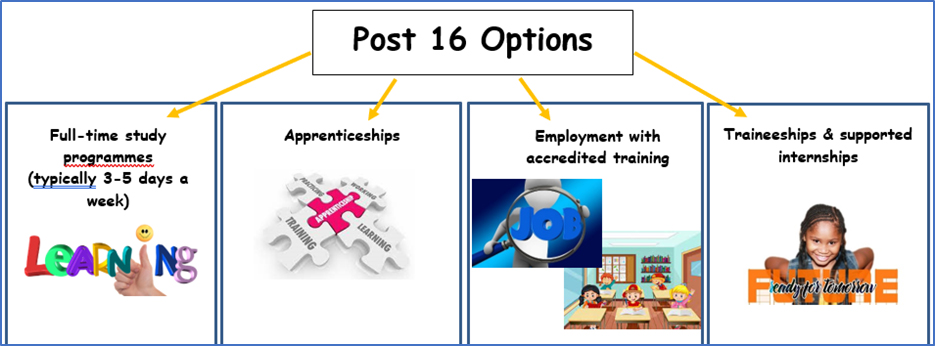

What we offer:
FutureSmart Careers’ philosophy is to work with schools, students and their families as flexibly as possible to provide the support they need. We are happy to have parents attend a student’s career or ‘next steps’ meeting if that is appropriate, and we take great pride in using guidance materials, modes of delivery and adjustments in practice that will support the needs of each student as well as embrace a range of learning preferences. Ways in which we can help include:
- Individual careers guidance or ‘next steps’ sessions/meetings for students.
- Choosing and planning the transition into Post-16 and Post-18 options.
- Considering further education providers and universities and courses.
- Applying to college, apprenticeships and university
- Pathways to employment.
- Exploring disability confident employers.
- Securing work experience, internships and traineeships.
- Preparing for adulthood and exploring daycare and/or independent living options.
- How to ace at a job interview.
What next?
Get in touch in touch to find out more about how we can support you.
Half Termly SEND Newsletter - Click here
If you would like to sign up to our SEND Newsletter please click the button below.



 0330 311 9509
0330 311 9509 



